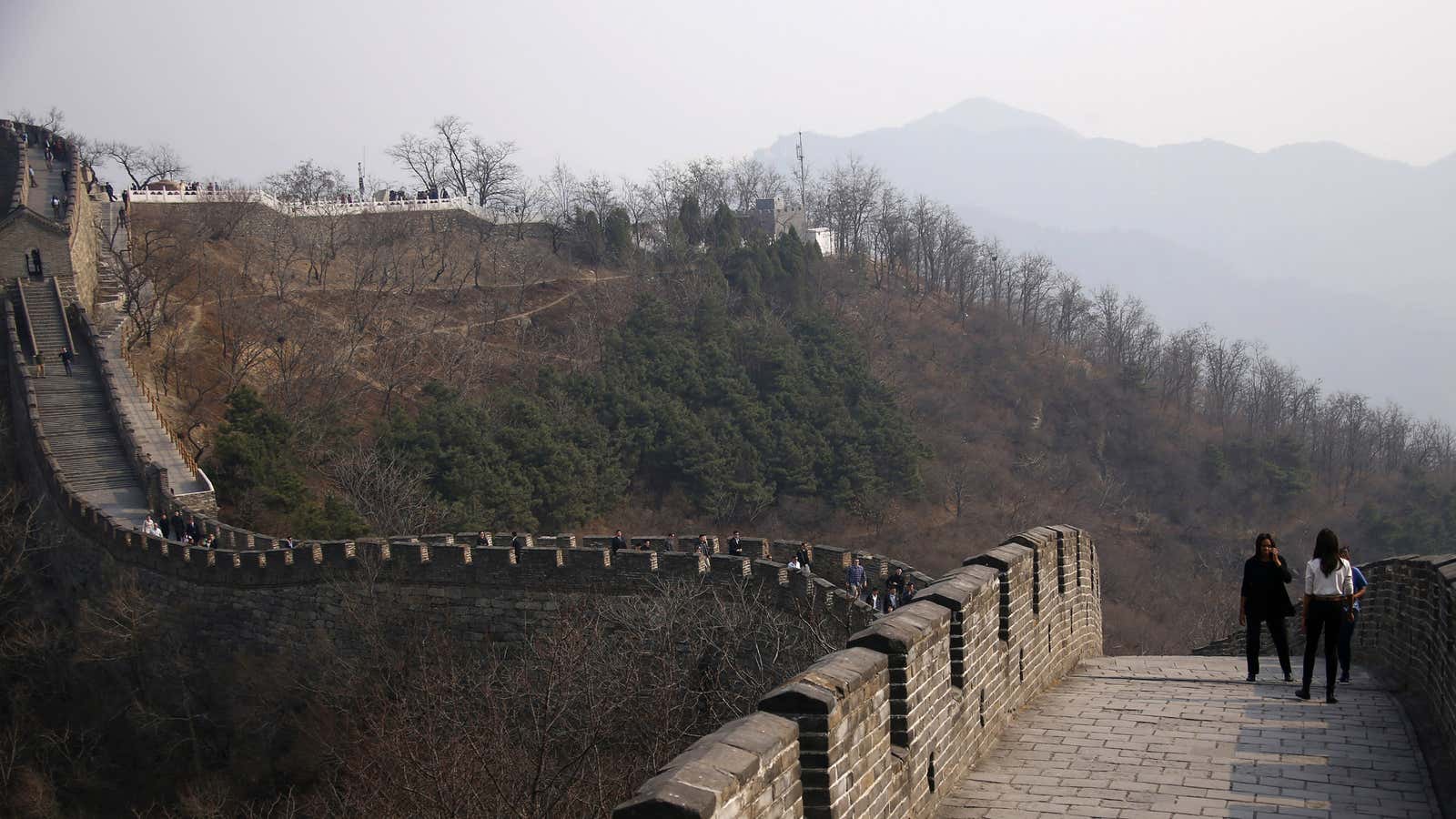China’s censorship of the internet is so effective that the vast majority of the country’s university students have little knowledge of the Tiananmen massacre that happened just 25 years ago.
Now that China has over 850 million mobile internet users, by far the most in the world, officials think that it has something to teach other countries about its method of internet management.
China wants to “promote an interconnected world that is shared and governed by all and to construct a common code of rules to make competition more fair” on the internet, premier Li Keqiang told “global corporate leaders” attending China’s ongoing internet conference, the state-run China Daily reported today. Li added:
Dynamics and order are the two faces of the Internet. Without dynamics, the Internet will lose its vitality, while without order, the Internet is not secure… As the cyberworld is bound to be shared by everyone, it should also be governed by all of us. I refer to both laws and self-discipline.
It is unclear which global corporate leaders Li made his case to. As Quartz has previously reported, this week’s “world” internet event in Wuzhen is a bit light on “global” leaders and heavy on Chinese executives. But this marks the second time in just a few months that Chinese officials have indicated that they’d like to play a role in establishing “order” on the internet outside of China.
At the World Economic Forum in Tianjin this September, Lu Wei, the head of the State Information Office—he’s best known as man behind China’s renewed, muscular crackdown on internet freedom in China, and silencing of numerous well-followed bloggers and commentators know as “Big V’s“—compared a completely free internet to a “car without brakes.”
Governments of the world should respect each others’ internet rules, he said during a panel discussion, and create a “blueprint” together about what “what kind of internet governance we want to have.”
Beijing has recently made it clear that the kind of internet governance it prefers includes banning information about everything from Hong Kong’s recent protests to Vladimir Putin’s alleged flirtation with the president’s wife. Finding global support for that may be tough.
